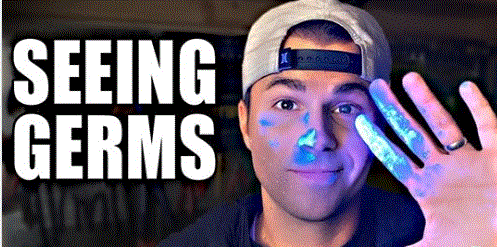
FSM News and Articles
Public health experts back stronger lockdowns to combat coronavirus: FSM co-founder Professor John Dwyer, an immunologist and Emeritus Professor of Medicine UNSW, said Australia should now avoid any incremental measures that would be “too little too late. If we don’t, we will see the same tragedy that has engulfed Europe and the US occur here. There are many hundreds (perhaps thousands) of Australians in circulation who are infected but experiencing only mild symptoms or no symptoms at all, yet still infectious.”
General
How to see germs spread (coronavirus): A good video on Youtube demonstrating how germs spread.
Department of Health expands free vaccine eligibility ahead of flu season: While people are obsessed with the COVID-19 pandemic (with good reason), it is important to remember to get immunised for influenza. Influenza is a potentially deadly disease and one for which we have a vaccine. The vaccine isn’t perfect but it is better than doing nothing. The flu vaccine saves lives.
Coronavirus ‘wellness scams’ being pushed by homeopaths, aromatherapists and naturopaths: “From ‘miracle minerals’ to herbal remedies and supplements, it seems the wellness industry will stop at nothing to capitalise on the worst public health crisis in a generation.”
Supplements for coronavirus probably won’t help, and may harm: “Someone asked me if they should do a detox juice cleanse and I told them absolutely not,” said Ms. Koff [Dietian] “Someone else asked me if they should be doing a fast. I told them anything that’s depleting your body of resources right now is going to increase the risk of you getting sick.” But she encourages people to focus on their diet, stress levels and sleep and warns them not to overload their systems with large doses of supplements. “This is the time to start implementing behaviors that support your health, not going and taking high amounts of things that are incorrectly listed as immune boosters,” she said.
Dietary supplement sales have surged nationwide as panicked consumers stock up on vitamins, herbs, extracts, and cold and flu remedies. None of these products have been shown to lower the likelihood of contracting the coronavirus or shortening its course, and taking large doses of them can potentially do harm. Excessive levels of zinc, for example, can disrupt the body’s uptake of copper, increasing the likelihood of anemia. Vitamin D is not metabolized efficiently without an adequate level of magnesium, and in high doses it can be toxic. Vitamins and herbal supplements can also interact with prescription medications, dampening their effectiveness or, in the case of blood thinners, for example, raising concentrations to dangerously high levels.
Despite this, the industry has also lobbied the federal government and state and local officials to classify dietary supplement makers as “essential” in areas where there are shelter-in-place ordinances restricting nonessential commerce.
What makes a good psychologist or psychiatrist and how do you find one you like? Each type of mental health worker will have a different area of speciality, as well as different qualifications, training and experience. In your question, you talked about psychologists and different areas of specialisation like clinical psychologists, neuropsychologists and psychiatrists, all of whom play a role in the assessment and treatment of mental health conditions. Understanding the role of each and how it aligns with your needs may help you in your decision.
Great Moments in Health and Science
The development of Abdominal Aortic Aneurysm Repair: An aortic aneurysm is an abnormal bulging of the largest artery in the body, which if not surgically repaired can rupture, leading to massive internal bleeding.
Today’s Abused Health Concept
Anti-vaccine ‘Experts’. Lori Matheson refuses vaccines for child – Michigan Supreme Court disagrees: In a recent case, a father had to go to court to win the right to vaccinate his daughter. While vaccine experts were aggressively and abusively questioned for hours on end, a Dr Toni Bark was brought in as an anti-vaccine expert. This highlights a deeper problem in the system, where anti-vaccine people with marginal credentials can serve as experts. Dr. Bark wanted to be certified as an expert in “adversomics”, which she claimed was “a field of medicine in which people … study vaccine injury and write about vaccine injury[.]” The Court of Appeals said “we are unable to discern exactly what comprises the specialty of adversomics, and what specialized knowledge Dr. Bark could offer the trier of fact in these proceedings.”
We have here someone with no relevant scientific credentials. She was a practicing physician, but there is no indication of conventional practice since 1993. She has no scientific publication record to speak of. And yet, she is brought to challenge the scientific recommendations and views of the most important expert agencies (CDC) and independent scientific bodies.
In general, the important thing is to look a persons history and ask “What make you an expert?”. If someone has studied the issue in depth, developed qualifications and experience in the area, increased the pool of knowledge on the specific topic through their work, and has learned how and why consensus is what it is, then they may rightfully claim to be an expert. On the other hand if someone merely has ‘opinions’, they are NOT an expert, and should be strongly censured when they attempt to conflict with real experts.